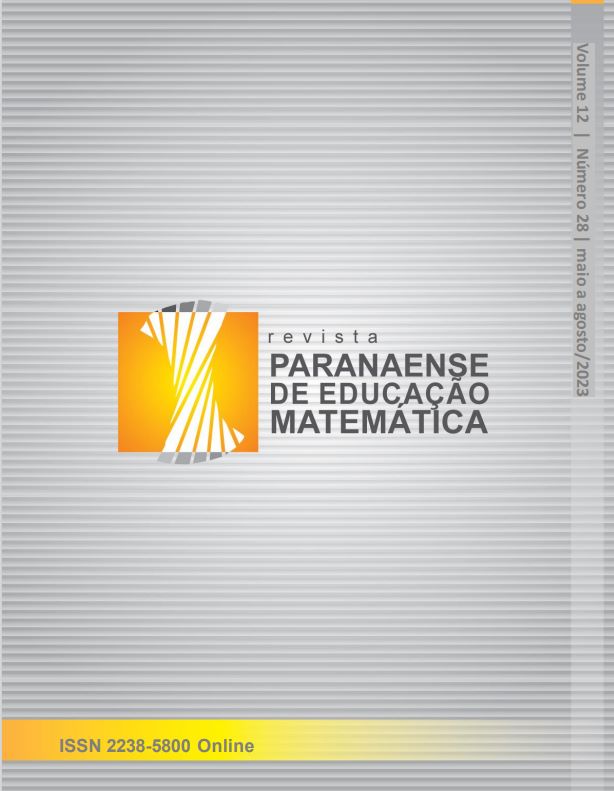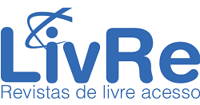THE REPRESENTATION OF THE LGBTQIA+ COMMUNITY IN BRAZILIAN POLITICS: REFLECTIONS FOR READING AND WRITING THE WORLD WITH MATHEMATICS
DOI:
https://doi.org/10.33871/22385800.2023.12.28.175-197Keywords:
Representation, LGBTQIA community, Foregrounds, Mathematics Education for Social JusticeAbstract
Historically, the Brazilian political scene was occupied by a single social group, consisting mostly of male, cisgender, heterosexual, white representatives in comfortable financial positions. Seeking to transform this context, social movements seek to articulate so that under-represented groups gain space in the difficult task of being accepted in these spaces to legitimize the importance of inclusive agendas and fight for Public Policies that value a society with more equity and justice. In this context, the LGBTQIA+ community that constantly fights for the right of people with deviant genders and sexualities to be and exist in their particularities and differences. Considering these assumptions, the objective of this work is to understand how mathematics can collaborate with a process of reading (understanding) and writing (transformation) of the world on issues of representation of the LGBTQIA+ community in the Brazilian political scenario. Mathematics was a fundamental means for understanding reality, comparing data and reflecting on a fair and equal representation. It was possible to notice that, despite being small, the representation of LGBTQIA+ people is essential and has grown in the last elections. In addition, the representativeness of this group helps in the constitution of foregrounds, that is, the future perspectives of the people of this community who begin to see these spaces as possible.
Downloads
References
BABER, S. A. Investigating the Interactions of Foregrounds and Backgrounds of Pakistani Danish Students in Denmark and Learning of Mathematics. In: LAURSEN, E. et al. (Ed.). Tanker til tiden: Om studier af læring. Aalborg: Aalborg Universitet Forlag, 2006, p. 181-201.
BARROS, D. D. Leitura e escrita de mundo com a matemática e a comunidade LGBT+: as lutas e a representatividade de um movimento social. 2021. 283p. Tese (doutorado em Educação Matemática) – Instituto de Geociências e Ciências Exatas, Universidade Estadual Paulista, Rio Claro, 2021. Disponível em:
< http://hdl.handle.net/11449/215761>. Acesso em: 19 de jan. de 2023.
BENEVIDES, B. G. Dossiê: assassinatos e violências contra travestis e transexuais brasileiras em 2022. ANTRA (Associação Nacional de Travestis e Transexuais) – Brasília, DF: Distrito Drag; ANTRA, 2023. Disponível em: https://brazil.unfpa.org/pt-br/publications/dossie-assassinatos-e-violencias-contra-travestis-e-transexuais-brasileiras-em-2022. Acesso em: 14 mar. 2023.
GUTSTEIN, E. Reading and writing the world with mathematics: toward a pedagogy for social justice. New York: Routledge, 2006.
INSTITUTO BRASILEIRO DE GEOGRAFIA E ESTATÍSTICA (IBGE). Pesquisa Nacional por Amostra de Domicílios (PNAD), 2018.
MOURA, A. Q.; FAUSTINO, A. C. ERIC GUTSTEIN E A LEITURA E ESCRITA DO MUNDO COM A MATEMÁTICA. Revista Paranaense de Educação Matemática, v. 6, n. 12, p. 10–17, 2020. Disponível em: https://periodicos.unespar.edu.br/index.php/rpem/article/view/6088. Acesso em: 14 mar. 2023.
PEREIRA, C.F. Barreiras à ambição e à representação política da população LGBT no Brasil. Revista Ártemis, Vol. XXIV, nº 1, jul-dez, 2017, p.120-131.
RIBEIRO, D. O que é: lugar de fala? Belo Horizonte: Letramento, 2017.
RIBEIRO, D. Quem tem medo do feminismo negro? São Paulo: Companhia das Letras, 2018.
SERAFIM, L.; SANTOS, A. Representação e representatividade nos espaços de participação cidadã. Adaptação da publicação “Enfrentando os desafios da representação em espaços participativos”, de Monica Dowbor, Peter Houtzager e Lizanda Serafim. São Paulo, CEBRAP: IDS, 2008.
SKOVSMOSE, O. Interpretações de Significado em Educação Matemática. Bolema, vol.32, n.62, Rio Claro, 2018.
STEINER, H. G. Mathematization of voting systems: some classroom experiences. International Journal of Mathematical Education in Science and Technology, 1988.
VOTE LGBT. Eleições 2022. Disponível em: https://votelgbt.org/2022. Acesso em: 20 out. 2022.
YOUNG, I.M. Representação política, identidade e minorias. Lua Nova, São Paulo, 2006, vol. 67, p.139-190.
Downloads
Published
How to Cite
Issue
Section
License
Copyright (c) 2023 Revista Paranaense de Educação Matemática

This work is licensed under a Creative Commons Attribution-NonCommercial-NoDerivatives 4.0 International License.










